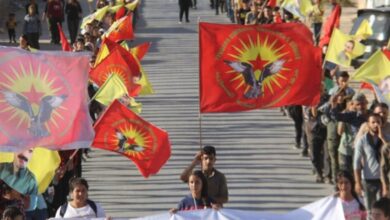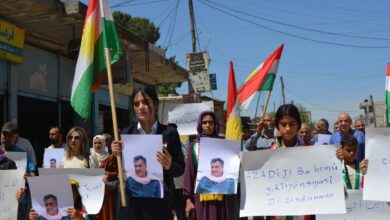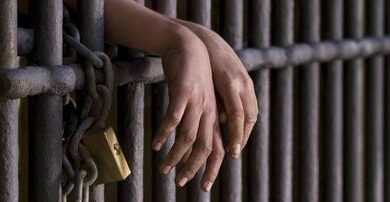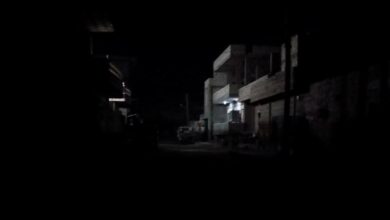
Kurds see Turkey impeding ISIS fight
Turkey and its Kurdish population – for decades in conflict – suddenly find themselves facing a common enemy in the Islamic State group. So it may reasonable to expect prospects for long elusive peace between Turkey and Kurdish rebels to improve.
Instead, Kurds who are arriving by the busload to join the battle are increasingly angry at a wary Turkish government trying to prevent them from crossing the border to defend Syrian Kurds from an onslaught that has left countless dead and about 150,000 fleeing into Turkey in recent days.
Kurdish leaders have warned that the discord could kill a peace process to end a bloody three-decade conflict over Kurdish autonomy in Turkey. Their followers go even further, accusing Turkey of supporting ISIS and using it to attack Kurds. Those claims persist despite Turkey’s participation in a coalition against the Islamic State group and suggestions this week by President Recep Tayyip Erdogan that Turkey may take part in military operations.
On Thursday, about 1,000 Kurdish activists arrived at the border after a more than 750 mile (1,200 kilometer) overnight bus ride from Istanbul in response to a call for mass mobilization by the imprisoned leader of the PKK rebel group, Abdullah Ocalan.
The activists held a rally chanting: “Down with the Islamic State and AKP partnership,” referring to Erdogan’s Justice and Development Party, as black smoke and the sound of gunfire from the battle between Islamic State and Kurdish militants drifted over the border.
Turkey vehemently denies it has supported ISIS, which until recently was holding dozens of its diplomatic staff hostage. Officials have also said in recent days that they remain committed to the peace process with Kurds in Turkey.
But many Kurdish activists say they believe that Turkish intelligence trained the Islamic State group and provided it with the heavy weaponry that it is using in an offensive against Kurds in Iraq and Syria. Analysts say that the militants seized much of their heavy weaponry from garrisons, especially when they captured Mosul in Iraq in June.
Activists who came to the border said they planned to camp there until Turkish authorities let them across. Some were prepared to join the fight to protect Kobani, a Syrian city just miles (kilometers) away that has been under siege by the Islamic State and emptied except for the Kurdish fighters protecting it.
Ramziye Bozkurt, a 35-year-old woman, originally from Diyarbakir in Turkey’s Kurdish heartland, accused the Turkish government of ongoing support to the militants, saying that participation in the coalition “was just a show.”
“The Islamic state has taken these villages and killed our people,” she said, gesturing at the smoking hilltop in the distance. “This is just a new way for Turkey to suppress the Kurds.”
For Bozkurt and others, the ultimate evidence is that Turkey was preventing them from crossing the border to support the fighters.
“If Turkey were not supporting the Islamic State, why wouldn’t they let us go?” she said.
Turkish law bans people from going to war in a foreign country, but Turkey has tolerated other militants transiting its borders to fight the government of Bashar Assad. Despite Turkey’s efforts to stop them, many Syrian and Turkish Kurds have been finding ways to cross over to Kobani in recent days – and it’s not clear how robust Turkey’s efforts have been to block them.
Ahmet, a 30-year-old man, who declined to give his last name for fear of repercussions, said that he had come on the orders of “Apo,” as Kurds refer to Ocalan, and would join the fight across the border.
“We came here to die,” he said. He added that he wanted peace in Turkey, but that if Kobani fell, the peace process would be dead and violence could break out again in Turkey.
Over the last week, the Islamic State offensive has taken the group to within miles (kilometers) of the city, but since coalition airstrikes began this week, Kurdish fighters and officials in the city say the attacks on their defenses have eased.
Mesut Yegen, a sociologist at Istanbul Sehir University, who focuses on Turkish nationalism and Kurdish issues said airstrikes may have saved the peace process.
“It is a highly likely that if the United States had not intervened and Kobani had fallen, the peace process could not have continued,” he said.
By The Associated Press | Suruc




